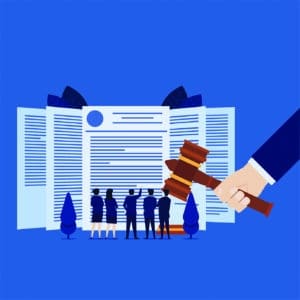
Imprecise language in retail leases can lead to litigation over what happens at the property after the term expires.
Commercial leases typically have several milestones – the signing of the lease, completion of tenant buildout, commencement of the lease term, commencement of rent payments, and finally, expiration of the lease, whereupon the tenant returns the premises to the landlord.
When leases expire, tenants generally must return the premises in the condition that they accepted them, reasonable wear and tear and damage by casualty excepted, and with tenant trade fixtures and other property removed. Most leases have specific language addressing these issues, but when the language is imprecise, or when tenants hold over after leases expire, conflict often ensues.
In 2005, the United States Court of Appeals for the First Circuit decided Prospect Hill Acquisition, LLC v. Tyco Electronics Corp., a particularly nasty example. Tyco sold property to Prospect Hill in November 2001, then leased it back until June 2002. Prospect Hill bought the property “as is,” knowing that cyanide compounds were used at the property. The lease required that Tyco remove “all equipment, ducts, fixtures, materials or other property that are or might be contaminated” at the end of the lease. It also required Tyco to pay triple rent if it held over after the lease expired.
As the lease expiration approached, Prospect Hill demanded that Tyco test the building’s concrete floor for cyanide. Tyco reluctantly complied and discovered traces of cyanide. Prospect Hill refused to accept the premises at the end of the lease, insisting that Tyco remediate the cyanide problem, even though Tyco had otherwise vacated the premises.
Tyco spent three months removing the contaminated flooring, while Prospect Hill billed Tyco for triple rent under the holdover clause. When Tyco refused to pay $423,000 in holdover rent, Prospect Hill filed suit in federal district court. The federal court ruled in Tyco’s favor and Prospect Hill appealed. The federal appeals court affirmed the district court’s decision.
According to the appeals court, the phrase “equipment, ducts, fixtures, materials or other property” in the lease referred to moveable objects, not the concrete floor. Therefore, Tyco had no obligation under the lease to remove the concrete floor, and Tyco was not liable for triple rent as a holdover tenant.
Who Must Remove Fixtures?
More recently, a Massachusetts superior court decided Wilder Companies, Inc. v. California Pizza Kitchen, Inc., in which a restaurant lease stated that the tenant may remove its trade fixtures and restaurant equipment at the end of the lease, but did not specifically require such removal.
The lease also had a holdover clause requiring the tenant to pay double rent if it did not vacate the premises at the end of the lease.
When the lease expired in 2014, the tenant left behind a pizza oven, walk-in refrigerator, ice chest, counters and seating booths. The landlord sued the tenant for $50,000 in costs related to removing the fixtures, as well as holdover rent. The tenant filed a motion to dismiss, claiming that the tenant had no obligation under the lease to remove the fixtures.
The Superior Court agreed and dismissed the landlord’s lawsuit.
Holdover Clause Snags Tenant
The Massachusetts Appeals Court showed little sympathy for a tenant last month in 154 Turnpike Road LLC v. A Beautiful You, Inc. The parties signed a retail lease in 2006, which expired in 2013. The lease included a holdover clause, requiring the tenant to pay 150 percent rent if it remained after the lease expired. The lease also included language stating that a party’s failure to complain about acts or omissions by the other party did not operate as a waiver of rights under the lease.

Christopher Vaccaro
After the lease expired, the parties tried unsuccessfully to negotiate a new lease. Meanwhile, the landlord billed the tenant for monthly rent at the regular rate, and the tenant made payments accordingly. When the tenant vacated in 2017, the landlord, surprisingly, sued the tenant for nearly $114,000 in holdover rent, retroactive to 2013. The tenant neglected to raise the defense at trial that the landlord should be estopped from claiming holdover rent, and the trial court ruled in favor of the landlord. On appeal, the Appeals Court disregarded the tenant’s estoppel argument, because the tenant had failed to raise it at trial, and upheld the lower court’s judgment.
There are lessons to be learned here. First, leases should carefully address tenant obligations regarding the condition of the premises and the removal of tenant property at the end of the lease term. Second, lawyers who carelessly waive their clients’ defenses at trial cannot expect any help from appellate courts.
Christopher R. Vaccaro, Esq. is a partner at Dalton & Finegold L.L.P. in Andover. His email address is cvaccaro@dfllp.com.




 |
| 